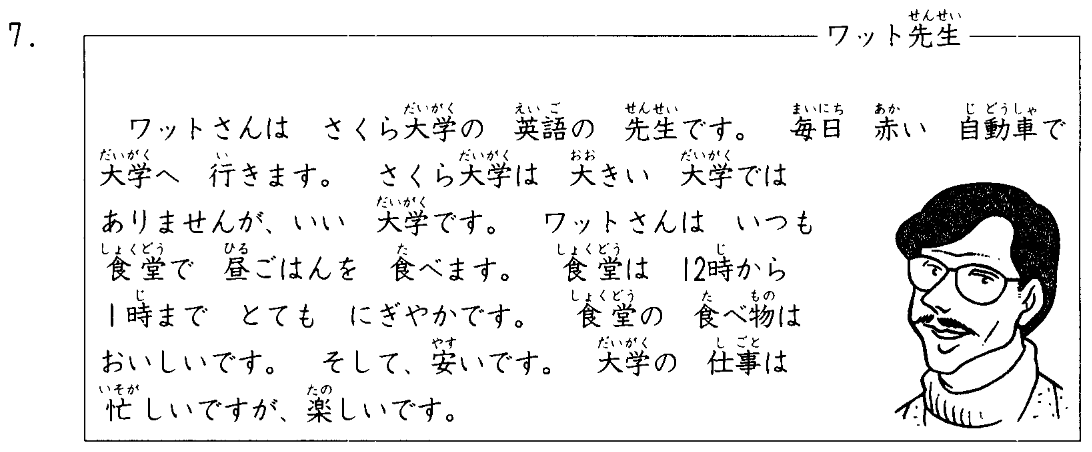


Those are the questions where the answers given are following the pattern for solving the problem exist in Minna no Nihongo Chapter 21 Section B Part 3 in page 175. So, the above all are answers given for the questions.

What do you think about Japanese company? Nihon no kaisha ni tsuite dou omoimasuka. What do you think about Japanese baseball? Nihon no yakyuu ni tsuite dou omoimasuka. What do you think about Japanese young person? Nihon no wakai hito ni tsuite dou omoimasuka.

It exist in Minna No Nihongo 1 Book, Chapter 21 Section B Part 3 in page 175. We can see the full questions and problems in Minna Nihongo 2 book chapter 26 practice B part 1 on page 60.―い形容詞・形容詞「―いけいようし・けいようし」: -i adjective (adjectival verb)įollowing after are the answers given for the questions according to the above grammar pattern and example. Since this is the renshuu section (practice), the exercises are quite simple, you just need to do the same as the example. * Any singular subject in this term is quite understandable since ‘hitori de’ means ‘just by one person, or just alone without someone else’. To do the renshuu section, you need minna no nihongo book. Meaning :(Any singular subject) can go anywhere by (myself/himself/herself). Meaning :(Any subject) can stop the car here. Meaning :(Any subject) can repair bicycle. * Any subject can be anyone since the subject not specified at all. Meaning :(Any subject) can read kanji letters. It is changed into a potential form ‘mierareru’ which is translated as ‘can be seen, can be visible’.īased on the above explanation involving pattern and the example, we will give only the answers for the question given in Minna no Nihongo 2 chapter 27 section B part 1 as follows : The above example, the sentence provided as an example is using ‘mieru’ which can be translated as ‘to be seen, to be visible’. Meaning : That small kanji can still be visible (be seen) from here by my grandfather. Romaji : Ojiisan wa ano chiisai kanji ga kochi kara mieraremasu. The verb itself, ‘taberu’ means to eat is changed into another form, ‘tabereru’ by modifying the conjugation of the verb. The above example is using ‘tabereru’ which is a potential form verb derived from dictionary verb ‘taberu’. Meaning : My younger sister (she) can eat spicy (hot) cuisine(food). Romaji : Imouto wa karai tabemono wo taberemasu.


 0 kommentar(er)
0 kommentar(er)
